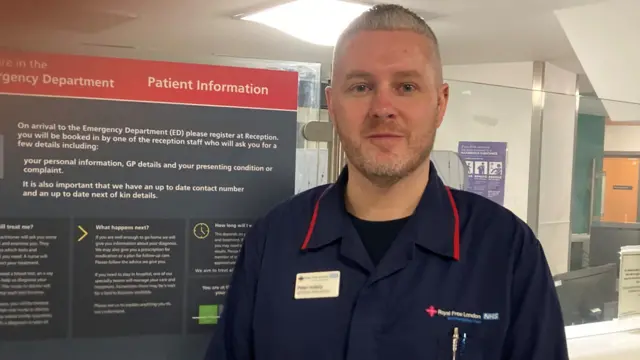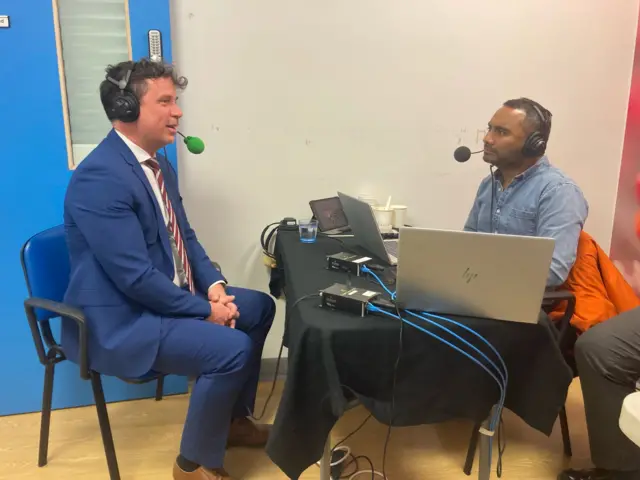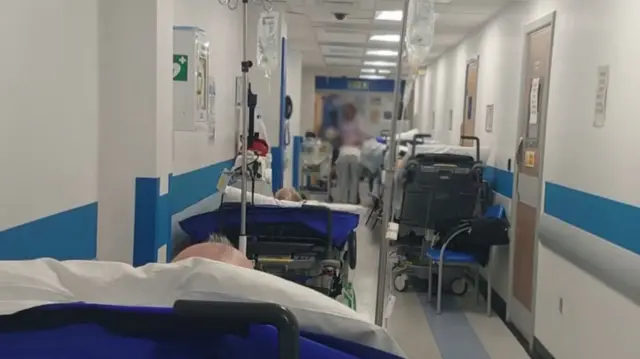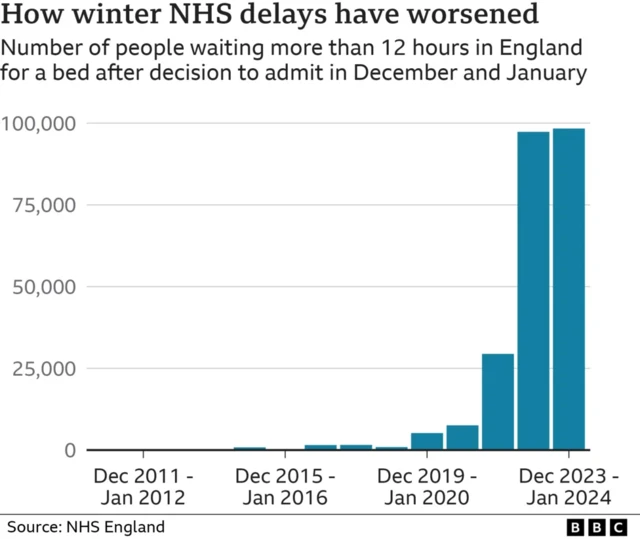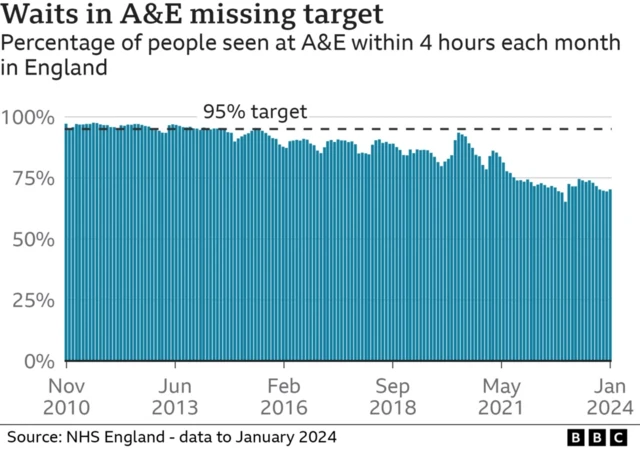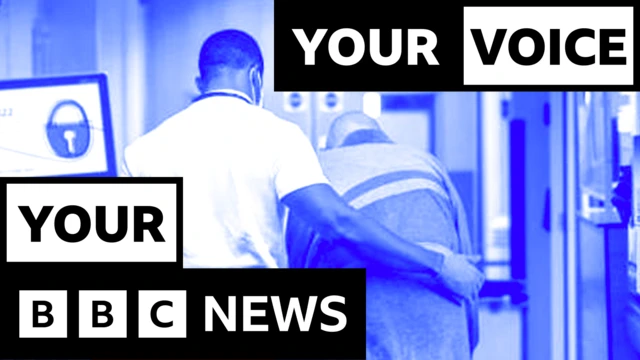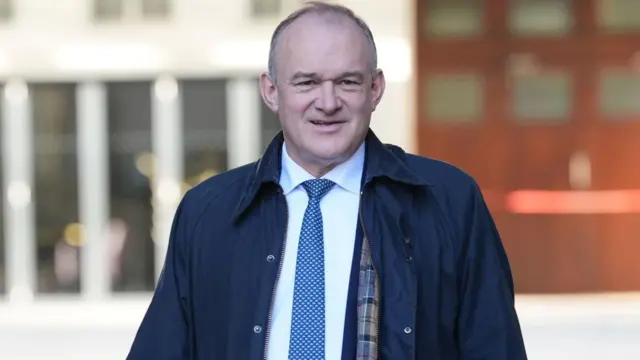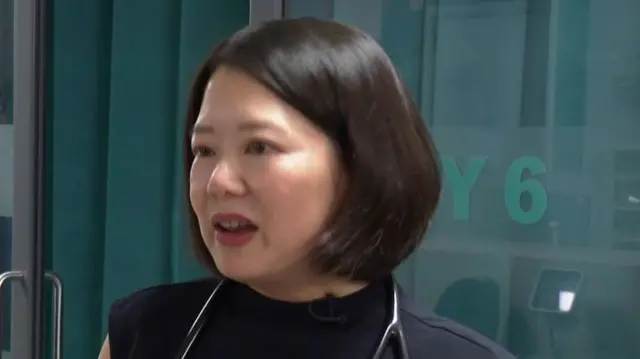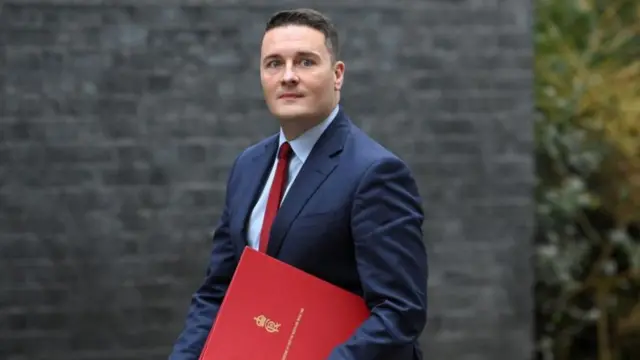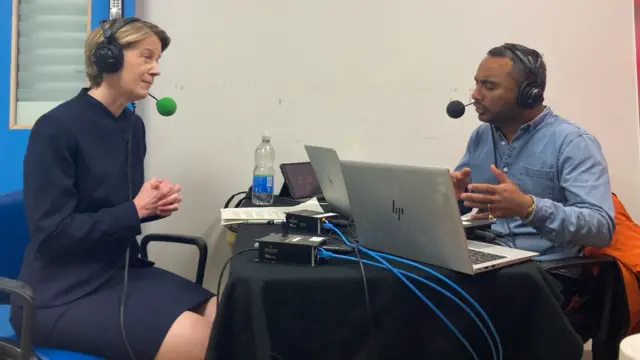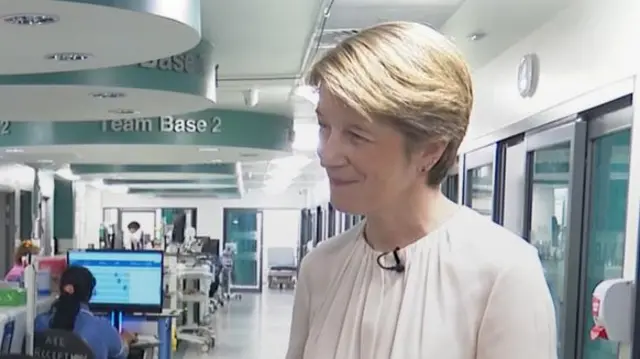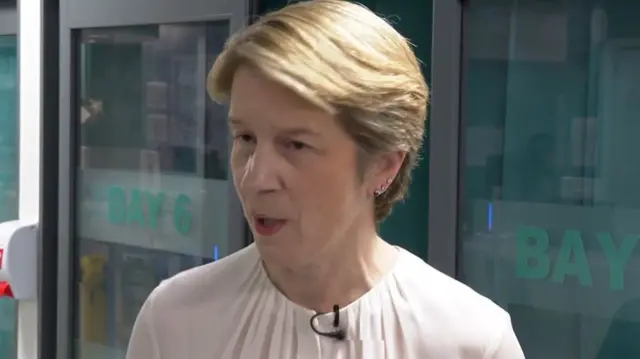Inside the Royal Free: Busy one for the night shifterspublished at 10:15 GMT 13 February
 Nick Triggle
Nick Triggle
Health correspondent, reporting from the Royal Free Hospital
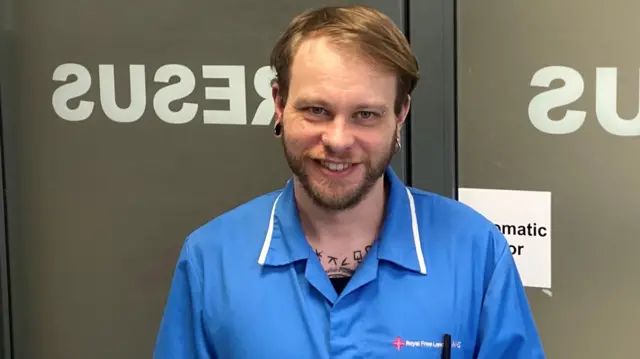
Senior staff nurse Greg Kite spoke to me a little earlier this morning after finishing his 12-hour night shift working in the resus areas of Royal Free’s A&E. This is for the most seriously unwell patients who need close monitoring.
“It was pretty busy – in resus we had to provide care to 12 patients. But there was good flow through the rest of the departments, although in the minors side there were nine-hour waits to see a doctor.”
Some of his patients had conditions such as heart failure, which was causing breathing difficulties, as well as two patients who staff were worried could develop sepsis, a potentially life-threatening immune reaction to an infection.
“We are on alert for that. We quickly carry out tests because any delays treating can have serious consequences.”

